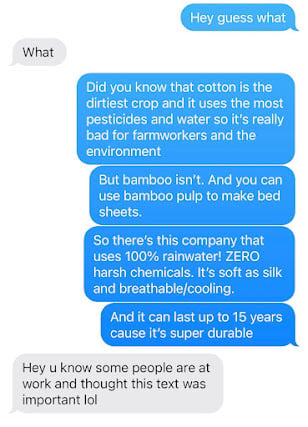this post was submitted on 15 Jun 2023
133 points (100.0% liked)
Autism
6829 readers
100 users here now
A community for respectful discussion and memes related to autism acceptance. All neurotypes are welcome.
We have created our own instance! Visit Autism Place the following community for more info.
Community:
Values
- Acceptance
- Openness
- Understanding
- Equality
- Reciprocity
- Mutuality
- Love
Rules
- No abusive, derogatory, or offensive post/comments e.g: racism, sexism, religious hatred, homophobia, gatekeeping, trolling.
- Posts must be related to autism, off-topic discussions happen in the matrix chat.
- Your posts must include a text body. It doesn't have to be long, it just needs to be descriptive.
- Do not request donations.
- Be respectful in discussions.
- Do not post misinformation.
- Mark NSFW content accordingly.
- Do not promote Autism Speaks.
- General Lemmy World rules.
Encouraged
- Open acceptance of all autism levels as a respectable neurotype.
- Funny memes.
- Respectful venting.
- Describe posts of pictures/memes using text in the body for our visually impaired users.
- Welcoming and accepting attitudes.
- Questions regarding autism.
- Questions on confusing situations.
- Seeking and sharing support.
- Engagement in our community's values.
- Expressing a difference of opinion without directly insulting another user.
- Please report questionable posts and let the mods deal with it. Chat Room
- We have a chat room! Want to engage in dialogue? Come join us at the community's Matrix Chat.
.
Helpful Resources
- Are you seeking education, support groups, and more? Take a look at our list of helpful resources.
founded 1 year ago
MODERATORS
you are viewing a single comment's thread
view the rest of the comments
view the rest of the comments

It's not that simple. The fabric most commonly made from bamboo is rayon, and rayon can be made from any cellulose fiber. Most rayon processes are actually pretty awful; they produce a lot of waste that's not great for the environment. Rayon--regardless of the source of the cellulose--is weaker than cotton, and tends to tear very easily when wet. You can process bamboo in a way that is much more environmentally responsible, but then you get a fiber that's more like linen rather than cotton. But very little bamboo fabric is made that way.
Overall, hemp is probably the most environmentally friendly fiber out there. It's not perfect, but it requires less pesticides, can be used as part of crop rotation (for the few farmers that do rotate crops), and needs less water to grow. It also grows in more climate zones. The fibers are harder to work with, and water is usually required to process them to a useful state, but you get very long staple fibers that are quite strong.
Came here for this.
I’m partial to flax linen, even though it’s not quite as good sustainability-wise as hemp.
It’s almost as absorbent and has similar anti microbial properties. But the main thing is it’s softer.
Hemp does appear to soften up over time but it can’t match linen’s particular soft smooth suppleness in the short nor the long run.
That said, the last decade or so “linen” is being made with factory processes using fibre ends instead of full strands. So it’s getting harder and harder to find real linen material that doesn’t break down in a couple years.
They’re even weaving jersey (stretch) material from it which is ridiculous, and eschews many of the benefits of the material. -_-
Linen is also a lot easier to work with. Hemp wovens are not very stable at all; the fibers slide around on each other, so you can easily end up with skewed pattern pieces. It also ravels easily. The 14oz hemp twill I've got is quite nice, but it's a challenging material to work with if you're used to 10-12 cotton denim.
Oh, and I think that more linen is being grown now, since flax seed and flax oil seems to be more popular as general food items now. I use a lot of flax meal when I make my grain-flour-free/sugar-free banana bread, because it helps prevent the 'bread' from feeling excessively dry. So maybe we'll start seeing more linen in the market as a byproduct of the flax seed and oil production?
What about tencel? Is it any good?
I believe--IIRC, and it's been a while--that Tencel is either a specific process for making rayon, or is a brand. What you should be looking for in rayon that makes it better is closed-loop manufacturing. But US product labeling doesn't require that kind of information; you'd have to ask the company that made the apparel, and they'd have to ask their mill or reseller.
Finding information about how green any part of the sewn-products industry is is very nearly an exercise in futility, unfortunately; companies don't have to have the information, and they don't have to disclose it.
I would like to subscribe to hemp facts.